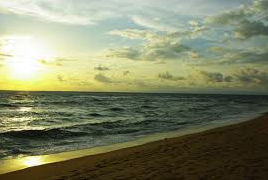To be honest, I found this assignment rather difficult. In my opinion, it is much easier to find the recent history of countries because often times people think it’s more relevant to life today. I really didn’t know anything about the ancient history of Liberia and was quite enlightened and impressed with the information I was able to unearth. Simply googling “the history of ancient Liberia” brought up numerous different websites, each with a valuable look into this mystifying country. I was however, a little surprised with the lack of differing information. There were a lot of sites to choose from but I really had to dig around in order to find unique and intriguing work. I have chosen three different websites to reference in this blog that have done slightly varying research on the history of Liberia. Now let us begin our journey into the life of the Liberian people who lived centuries ago.
The history of Liberia began during the 12th and 16th centuries. During this time there was a huge influx of various tribal members who were escaping their downtrodden regions. Much like the immigrants who have made their way into the United States, these tribal members brought numerous skills, social ideas and diversity with their arrival. These included “iron smelting, weaving, spinning, and the cultivation of rice and other staple crops in addition to political and social skills and traditions.” (iexplore) These new ideas quickly led to the rapid increase in trading goods with other West Africa regions during the 15th century.
Liberia lies on the coast of the Atlantic Ocean, which meant a great potential for trade and exploration. Specifically, since Sierra Leon, Guinea and the Ivory Coast border Liberia, the natives and people from tribes were able to travel throughout this region, which put them in the position to interact with not only other Africans but also with European explorers and ultimately slave traders. For Liberia, traveling and having access to other African countries had both a positive and negative affect on their society both then and carried into now.
During this pre-colonial time, Liberia was mostly split-up into sixteen different tribal groups who would occasionally come together to discuss matters of mutual importance. They included: Bassa, Belle, Dahn, Dei, Gola, Grebo, Kissi, Kpelle, Krahn, Kru, Morma, Mandingo, Mono, Mende, and Vai. Due to the sheer number of tribes, no central government was able to take root and form. There was however, some level of control within these communities. Chiefs, elders and religious priests were most widely regarded as the leaders in charge. This style of leadership some say resemble a “Compound” which was commonly comprised of a large, interacting family clan. In many of these communities, “mechanisms for social control were characterized by military, religious and social sanctions in which secret societies…played key roles in managing social and political strife through the provision of secular and sacred functions.” (issafrica.) To summarize, while the chiefs and other elders of these tribes were first in command, it was various sanctions centered on military, religious and social means that influenced social control.
Here are the websites that I was able to learn from for this blog!
http://www.iexplore.com/travel-guides/africa/liberia/history-and-culture
http://www.issafrica.org/af/profiles/Liberia/LIBERIA1.HTML
http://www.law.yale.edu/rcw/rcw/jurisdictions/afw/liberia/Lib_CRC.htm




